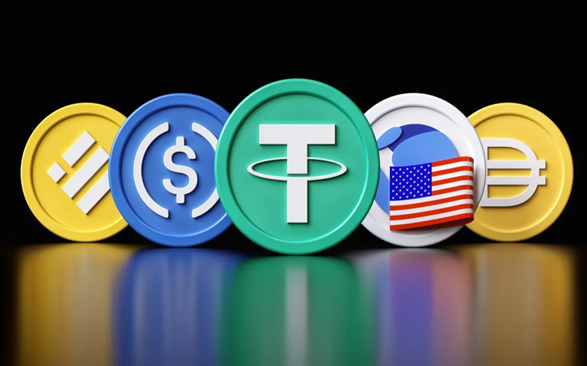“Digital assets” are now expressly classified as “securities” in Nigeria, officially and effectively making digital assets regulation in the country the primary business of Nigeria’s Securities and Exchange Commission (SEC).
Nigeria’s President Bola Ahmed Tinubu signed the new Investment and Securities Act 2024 into law on 28 March 2025, marking a significant milestone for the country’s financial regulatory framework.
Although the Finance Act 2023 expanded the definition of “chargeable assets” under the Capital Gains Tax Act 1 (as amended) to include “digital assets”, the Investments and Securities Act is the first Nigerian legislation to expressly recognize digital assets as securities. Amongst other provisions, the new law:
- officially classifies digital assets as securities, effectively bringing Digital Asset Exchanges, Digital Asset Operators (DAOPs), Digital Asset Custodians (DACs), and other VASPs who deal in securities under SEC’s regulatory authority; and
- increases penalties against bad actors by imposing longer jail terms and significantly more fines on bad actors who are found liable of engaging in Ponzi schemes and other illegal investment schemes in the capital market.
This new legislation has far-reaching implications for Nigeria’s nascent digital assets industry.
Key Implications for Digital Assets
- Categorization as Securities: The Investment and Securities Act 2024 categorizes digital assets as securities, bringing them under the regulatory purview of the SEC.
- Increased Regulatory Oversight: The SEC will now have more authority to regulate digital asset transactions, exchanges, and other market participants.
- Improved Investor Protection: The new law aims to provide better protection for investors in digital assets, ensuring that they have access to accurate information and are not exposed to fraudulent activities. It also increases criminal punishments for bad actors, including promoters of Ponzi schemes.
Pros
- Clarity and Certainty: At least as far as what the SEC views “digital assets” to be, the new law provides clarity on the regulatory status of digital assets. Although the SEC already indicated this in its previous statement and regulatory framework, this is the first time it is recognized in an act of the National Assembly.
- Increased Investor Confidence: The categorization of digital assets as securities and the increased regulatory oversight may attract more investors to the market.
- Better Risk Management: The new law will serve as a legal backing to the SEC’s regulatory frameworks on helping to mitigate risks associated with digital asset transactions.
- Enforcement actions: With digital assets, including crypto, now recognized by an act of the National Assembly as securities in the country, individuals and businesses who deal with them as consumers, should no longer suffer enforcement actions such as having their bank accounts blocked or frozen on the basis that digital assets or cryptocurrencies are restricted in Nigeria. Such enforcement actions are illegal, except where appropriately and duly implemented against unlicensed operators, not consumers.
Read also: Nigeria’s SEC issues ‘Approvals-in-Principle’ to digital assets exchange firms.
Cons
- Stringent Regulations: The new law may impose stringent regulations on digital asset market participants, impacting business models and corporate governance structures. Effectively, these changes may potentially stifle innovation for a number of operators whose model may not be consistent with the conventional requirements of the capital market.
- Compliance Costs: Market participants may incur significant costs to comply with the new regulatory requirements. Particularly considering that all digital assets are to be treated as “securities” without any consideration of specific nuances, compliance will most likely become costly for the new operators coming into a more traditional capital market.
- Potential for Over-Regulation: The SEC’s increased oversight may lead to over-regulation, potentially harming the growth of the nascent digital assets market, particularly for local innovators who may not have the financial backbone to secure requisite licensing and registrations.
Read also: Nigeria charges Binance $81.5 billion for economic losses and tax evasion.
Looking Forward
The SEC and other relevant stakeholders deserve commendation for the milestone reported above.
However, classifying all digital assets as securities, and effectively all VASPs as capital market operators, is a blanket treatment of digital assets that does not consider any nuances. This generalization without exceptions will have significant implications for the growth and development of digital asset-related businesses, local and foreign, in Nigeria.
To prevent a situation where VASPs who do not offer digital assets as securities products and services are unnecessarily stifled, Nigeria may consider a distinct licensing regime for such VASPs. Here, the CBN may introduce special licenses for VASPs who operate strictly within payments and cross-border transactions. And if Nigeria authorities’ recent treatments of foreign-currency backed stablecoins are anything to go by, foreign-exchange related digital asset services may also be one of such VASPs services. For this purpose, the SEC should either be open to issuing exemption letters to such VASPs or permit automatic exemptions in order to avoid the unnecessary delays and inefficiencies that typically come with government bureaucracy.
Overall, the signing of the Investment and Securities Act 2024 into law marks a significant development for Nigeria’s digital assets market. While there are potential benefits, there are also concerns about the impact of increased regulation on innovation and market growth. Though the Nigeria crypto industry is not where it needs to be (yet), it is certainly not where it used to be.
Discover more from Crypto Asset Buyer
Subscribe to get the latest posts sent to your email.





